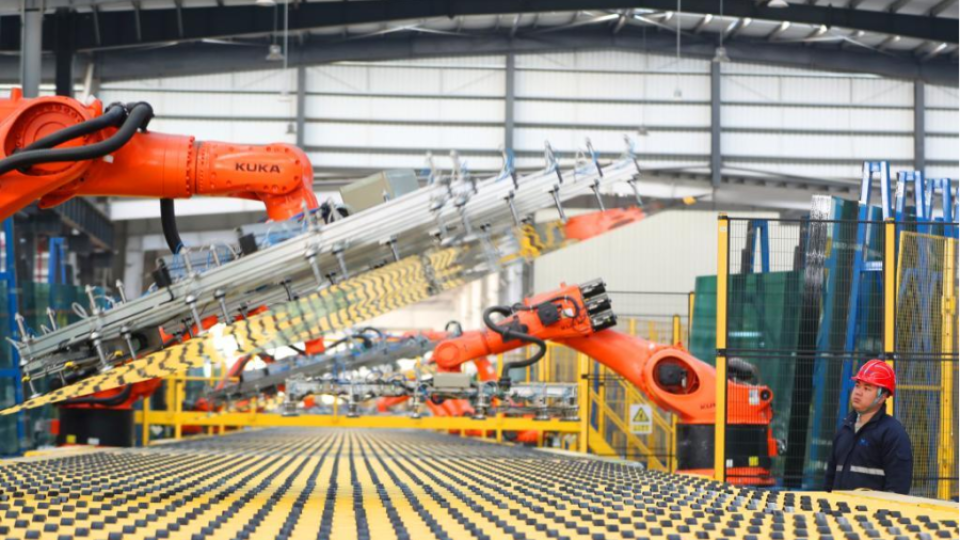March 2, 2023
BEIJING – Outlook: Optimism continues to improve
China’s economic activity, including in both the manufacturing and services sectors, expanded for a second straight month in February, offering the latest snapshot of China’s solid growth momentum amid signs of recovery.
Officials and analysts said the broad-based improvement in both sectors points to a gradual normalization of activities and the accelerated resumption of work and production, as China gradually shakes off the COVID-19 impact and is on track for a steady recovery despite global headwinds.
Their comments came as data from the National Bureau of Statistics showed on Wednesday that the purchasing managers index for China’s manufacturing sector, which measures activity at factories, surged to 52.6 in February from 50.1 in January. The reading was well above the 50-point mark that separates growth from contraction, marking a new high since April 2012.
China’s nonmanufacturing PMI, which tracks activity in the services and construction sectors, rose to 56.3 in February from 54.4 in January.
Zhao Qinghe, a senior statistician with the NBS, attributed the improvement in economic activity to the accelerated resumption of work and production, as well as the reopening of businesses, as stimulus policy measures further take effect, and the country gradually shakes off the COVID-19 impact.
“The improvement in factory activity reflects the solid recovery trend of China’s economy in terms of the improvement of both demand and supply, suggesting that the momentum of China’s growth is gathering pace,” said Zhou Maohua, a macroeconomic analyst at China Everbright Bank.
NBS data showed the subindexes for production and new orders came in at 56.7 and 54.1 respectively, both higher than the readings in the previous month.
“February’s PMIs all came in well above market expectations,” Lu Ting, chief China economist at Nomura, said in a note.
“The official manufacturing PMI jumped to 52.6 in February … thanks to the fast resumption of manufacturing activity following the Chinese New Year holiday, with the pandemic finally behind us.
“Amid the robust recovery of in-person services, nonmanufacturing PMI improved further.”
This month, Nomura said it expects both manufacturing and nonmanufacturing PMI to remain elevated, as the post-COVID recovery continues.
Nomura expects China to set its 2023 GDP growth target at “around 5.5 percent” at the upcoming two sessions — the annual meetings of China’s top legislative and political advisory bodies — which is the same as last year and close to its forecast for 2023 GDP growth of 5.3 percent.
The Caixin China General Manufacturing PMI, which focuses more on small and medium-sized enterprises and exporters, also picked up strongly to 51.6 in February from 49.2 in January, media group Caixin said on Wednesday. It’s the first time the gauge has crossed the 50-point mark in seven months, logging a new high since June.
Notably, optimism continued to improve among manufacturers in February. The reading for manufacturers’ expectations for future output reached a level not seen since March 2021, expressing strong confidence in a post-pandemic economic recovery.
Meanwhile, Wang Zhe, senior economist at Caixin Insight Group, said the foundation for economic recovery is not yet solid, and it will take time to fully restore production and social order to normal.
Jin Zhuanglong, minister of industry and information technology, told a news conference on Wednesday that the country will take solid steps to promote the high-quality development of SMEs, including optimizing the business environment and further implementing policies on easing the burden on the nation’s small and medium-sized firms.
He said the country will strive to cultivate over 80,000 specialized and sophisticated SMEs and around 100 SME industrial clusters with local features in 2023, and the country is preparing to introduce a guideline on further improving the service system for small and medium-sized firms.
In 2022, the number of industrial SMEs and micro businesses in China surpassed 52 million, and the combined operating revenues of SMEs with an annual revenue of at least 20 million yuan ($2.91 million) from their main operations surpassed 80 trillion yuan last year, according to the ministry.
Wu Fei, CEO of Beijing LLVision Technology Co, a Chinese augmented reality technology startup, said that he expects to see more efforts in terms of creating a better business environment.


